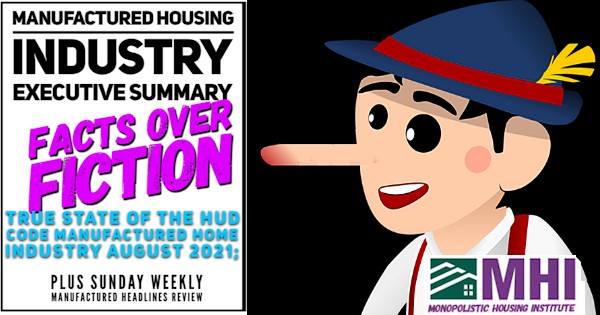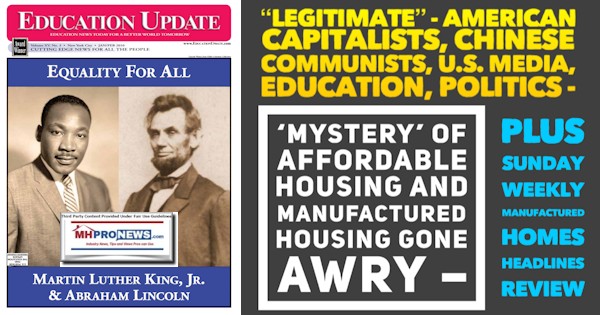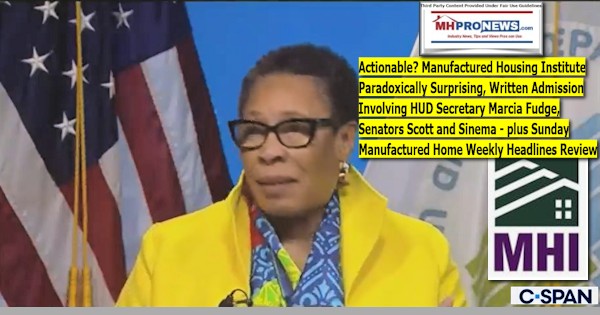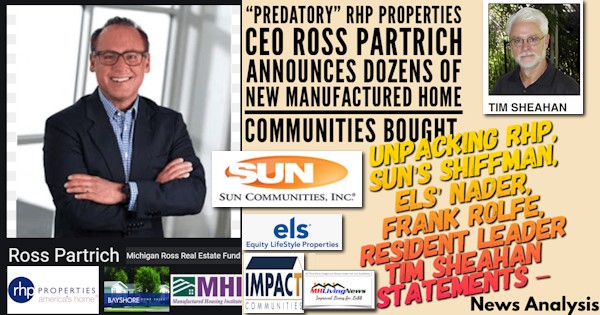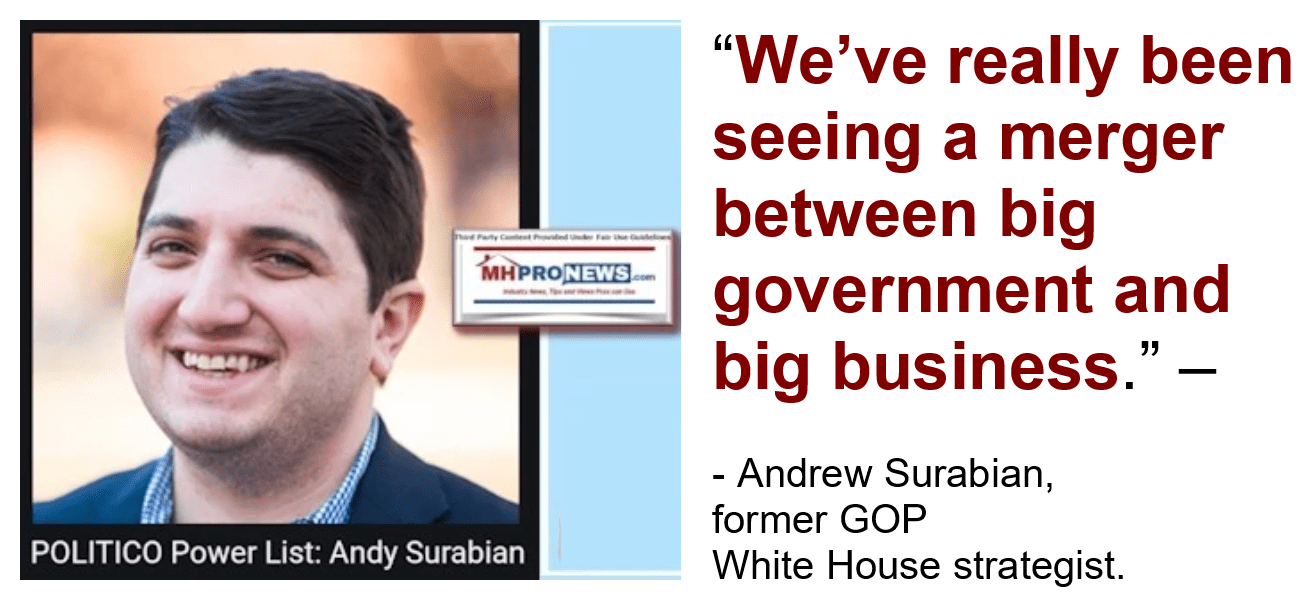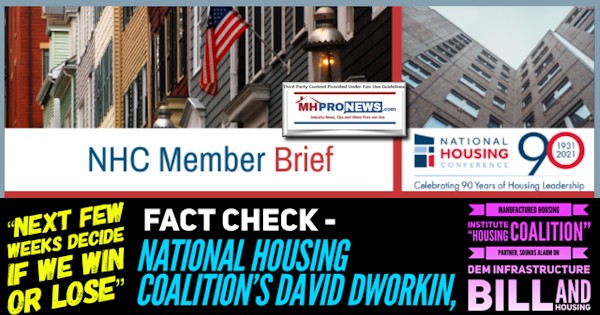
“You cannot address issues of racial inequity if you do not address housing inequity — it is an impossibility. They’re so inextricably linked.” So said “Lisa Rice, president and CEO of the National Fair Housing Alliance, said in Politico last week.” That comes from a nonprofit advocacy email and website that says that the “The National Housing Conference (NHC) is the oldest and broadest coalition of affordable housing leaders in America. We are proud to be celebrating 90 years of developing solutions to address the nation’s most urgent housing priorities.” Meaning, to the NHC’s credit, they have brought out some information that ought to be useful to all those interested in housing, economics, and justice. This report and analysis will be a critique, and to the NHC’s credit, they often bring out useful and even important insights such as that pull quote from Rice at the National Fair Housing Alliance. Good information and facts are important and one reason we periodically monitor NHC are for those reasons. That noted, the Manufactured Housing Institute (MHI) has periodically touted their relationship with the NHC as part of the MHI self-described “housing coalition” that they have also referred to as “partners.” Unlike MHI, when NHC sends out an email, several elements may end up on the public side of their website. Often, what MHI sends out to members or their non-member reading list never appears on the MHI website. That makes accountability more difficult, and a traditional function of media is to hold institutions and the powerful to account. With that brief backdrop, the following blog post was emailed to MHProNews and will be unpacked after the message from NHC’s Dworkin through the lens of the interests of manufactured housing independents, investors, affordable home seekers, manufactured homeowners, taxpayers, and others.
The bill that the NHC is touting, and which MHI seems to be behind too, is largely rejected from those on the right as being too costly and laden with pork that favors special interests. Many in the center opposed this plan too. It is largely those from the left – especially progressive or hard left camp – that supports this Democratic Party legislation. With that backdrop, let’s see word for word (typos in their original) shown below.
The next few weeks decide if we win or lose
SUNDAY, OCT 10, 2021
David Dworkin

If you are reading this note, chances are that you have dedicated most of your adult life to housing. Some of us are builders, and others advocates. Some are developers and others researchers. We are Democrats, Independents, and Republicans, conservatives, centrists, and progressives. To us, the importance of housing to our nation, our economy, our neighborhoods, and our families is obvious.
But that is not the case with most policymakers in Washington. They too have dedicated their lives a wide range of issues, to which they equally passionate, like climate change, national defense, health care, and deficit reduction. So, if we want housing to be represented in the largest spending bill in American history, we will have to fight for it. Because as I write this note, housing may already have been cut entirely from the bill.
Slashing or eliminating spending on housing would contribute to escalating housing prices and be a devastating loss for racial equity. President Biden’s Build Back Better plan calls for the construction or preservation of 2 million affordable homes. A recent analysis published by Moody’s Analytics estimates there is an annual shortage of 100,000 affordable housing below demand. According to research by Freddie Mac, as of the fourth quarter of 2020, the U.S. had a housing supply deficit of 3.8 million units. The Neighborhood Homes Investment Act (NHIA) would build and rehabilitate approximately 500,000 homes. Literally building our neighborhoods back better. The Affordable Housing Credit Improvement Act (AHCIA) would create an additional 1,380,500 affordable rental homes over the next ten years.
Democrats from the White House to the Hill are quick to stress their support for racial equity. But where is it in this legislation? It’s in housing. As Lisa Rice, president and CEO of the National Fair Housing Alliance, said in Politico last week, “You cannot address issues of racial inequity if you do not address housing inequity — it is an impossibility. They’re so inextricably linked.” I couldn’t agree more. I said, “I don’t understand how you could possibly focus a bill on your highest priorities and not include racial equity. How do we tell people ‘Sorry, it’s not your bus,’ when everyone knows it’s the last bus?”
The Washington Post reported on October 2 that the Biden administration may have a few items at the very top of their list, and housing isn’t one of them. In a call with advocates on Friday, House Financial Services Committee Chairwoman Maxine Waters (D-Calif.) warned that housing was in danger of being eliminated from the legislation. Health care, various aid to families, and climate are said to top the priority list. We should reinforce the importance of housing to all of these issues. Research has shown that housing and health care work together to improve outcomes and save money. Building in established communities and restoring old housing is much more environmentally responsible than building in green fields.
To restore this critically needed funding, we must work together. That means we will have to be as flexible with each other as we are tenacious with Members of Congress. NHC has weighed in heavily on behalf of the several programs that contribute to our affordable housing production and racial equity priorities. These include the NHIA, the AHCIA, and a new downpayment assistance program for first-generation homebuyers. But the fact remains that all the housing programs in the Build Back Better legislation are important to our mission. Members like the National Low-Income Housing Coalition and the National Alliance to End Homelessness have led the fight for historic levels of Section 8 funding, public housing repairs, and the Housing Trust Fund. These priorities are equally important, and we will celebrate their inclusion in any final legislation.
The next two to three weeks will decide success or failure for a year’s work. How can you help?
Take nothing for granted. Every member of the House and Senate leadership is essential, as are the chairs of all the housing-related committees and subcommittees, including the House Ways and Means Committee and the Senate Finance Committee. Even when they say they support us 100%, it is not enough. Ultimately, they will have to choose two or three or four priorities. Being number five on their list means we lose.
Be strategic. Honey is always better than vinegar. Threatening, cajoling, and shaming will not win a single vote. Has that ever worked when someone has tried to convince you of something? Me neither. Members of Congress want to know why this is good for their constituents. Be sure you have enlisted the support of people they know in their state or congressional district who can tell them.
Work together. NHC’s success over 90 years has been built on our role as the unlikely coalitions of a broad range of housing advocates. When the White House received our letter on behalf of the Homeownership Assistance Fund – on January 21 – the first thing they noticed was how ideologically and sectorally diverse the signers were. When meeting with a Member of Congress, note the unlikely members of your own coalition, or better yet, include them in your Zoom call or state or district meeting.
It’s not too late to get hundreds of billions of dollars in the final bill, even if it is cut from $3.5 trillion to $2 trillion. But it won’t happen without every one of us working together. ##
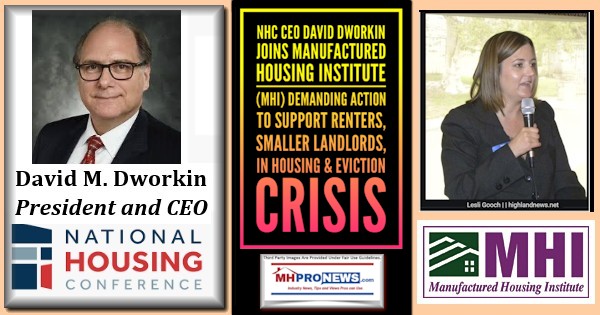
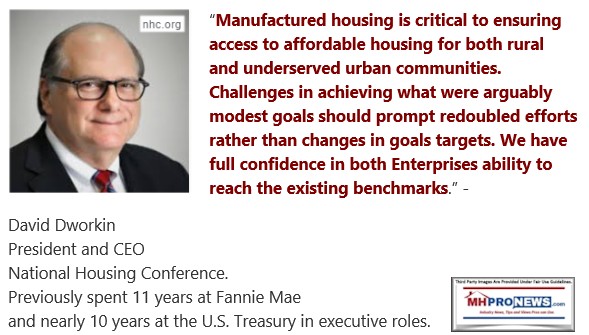
Additional Information, MHProNews Analysis and Commentary
Dworkin-led NHC is in some respects arguably more transparent than MHI, and this viewpoint of his above is evidence of that statement. Dworkin is saying he supports having housing in the Democrat-led charge for a multi-trillion “infrastructure” bill that has been hung up in good measure by Senators Joe Manchin (WV-D) Kyrsten Sinema (AZ-D), who by withholding their support thus far, have allowed the Republican opposition to date to be successful.
When MHI’s CEO Gooch or others there speak of “their” coalition, to a significant degree that is a reference to NHC and/or other NHC members. The first question that authentic manufactured housing industry advocates should ask: is what Dworkin described good, bad, or meh for out industry’s interests? While the MHI “coalition” members shifts from issue to issue, many are routinely members of NHC. ICYMI, or need a reminder, this was a full page ad that MHI published with their “coalition” partners. Instead of taking this widely agreed crisis, and making it into an opportunity to advance manufactured housing interests, instead MHI has joined others to support the efforts of de-facto competitors of manufactured housing. This can’t be made up, it is a self-evident truth hiding in plain sight.
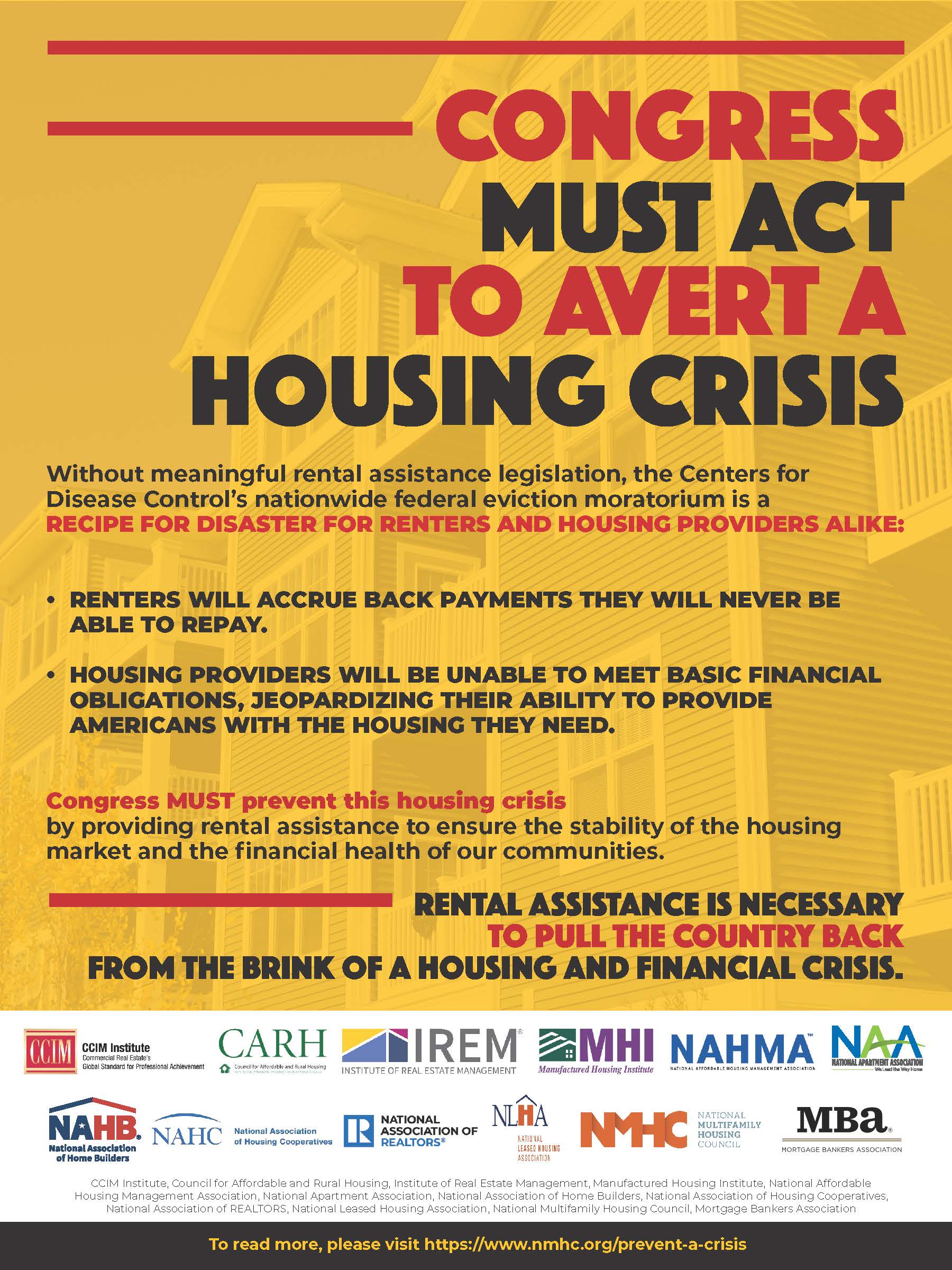
As the link above and here has noted, Dworkin has at times said quite useful things about manufactured homes in comments letters. So too has Tom Hardiman, Executive Director of the Modular Home Builders Association (MHBA). Hardiman has publicly ripped the legislation that Dworkin is promoting. MHI is apparently on board with what NHC is advocating for, per Gooch who said to HousingWire that they “hope” manufactured Housing interests are advanced. “Hope” is an add choice of words to use twice in that op-ed by Gooch, given that politicians on both sides of the aisle – e.g.: Hillary Clinton, Rudy Giuliani, and Mitt Romney – are among those who have said that “hope is not a strategy.” Rephrased, what MHI has in ‘hope’ is not a smart strategy, at least, not if the true goal is industry growth.
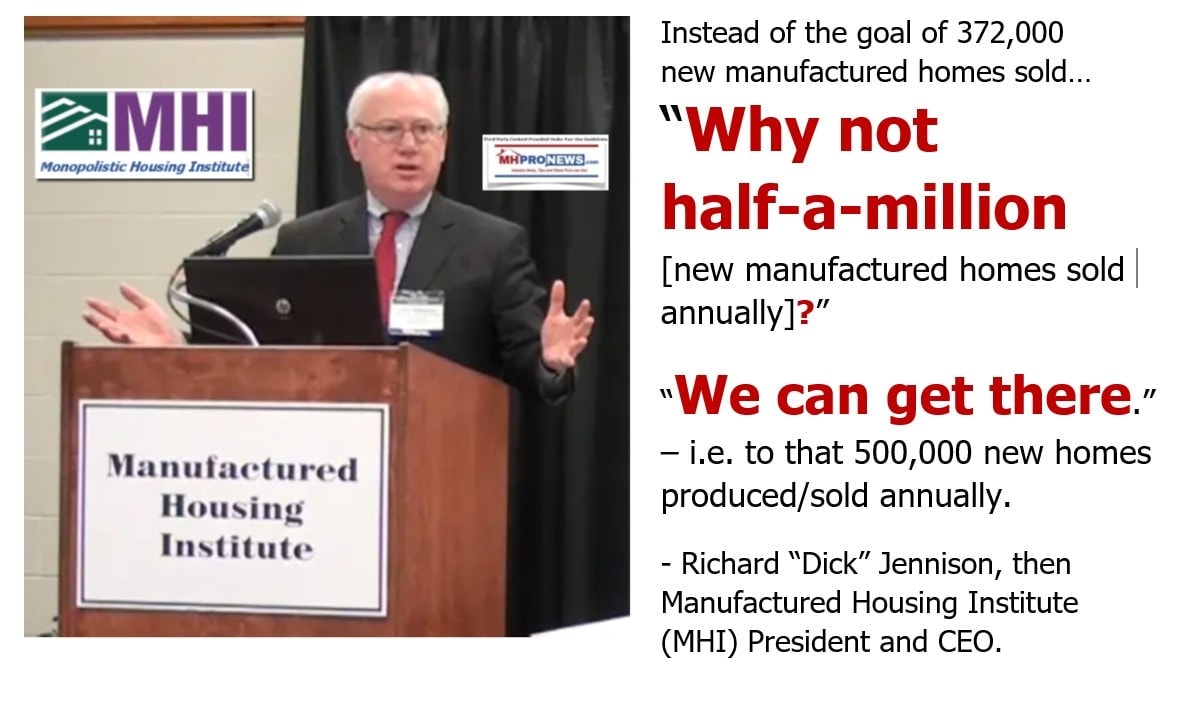
Among the problems with this Democratic bill – besides it’s outrageous cost, and the fact that it will fuel what is commonly called “inflation” (arguably, better described as depreciation of the value of the U.S. dollar) – are the following.
In no particular order of importance, considerer the following.
- To view the housing part of the bill from the vantage-point of its advocates, it should be noted that the bill as Dworkin framed it does not claim to close the housing deficit gap. That can’t be ignored. Their own math, with hundreds of billions in spending, will not keep up with the needs. So why propose a piece of legislation that fails to solve the problem it claims to address?
- Without closing the housing deficit gap, the pressures on the people that this bill claims to advocate on behalf of will logically only persist.
- The Democratic plan, backed by Dworkin and seemingly MHI, is arguably the latest example of sabotaging monopolies, as described by James A. Schmitz Jr. and his research colleagues that say that mainstream builders, HUD, and a named nonprofit are working to limit manufactured housing.
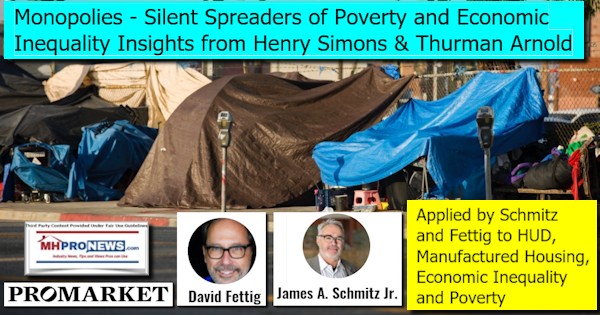

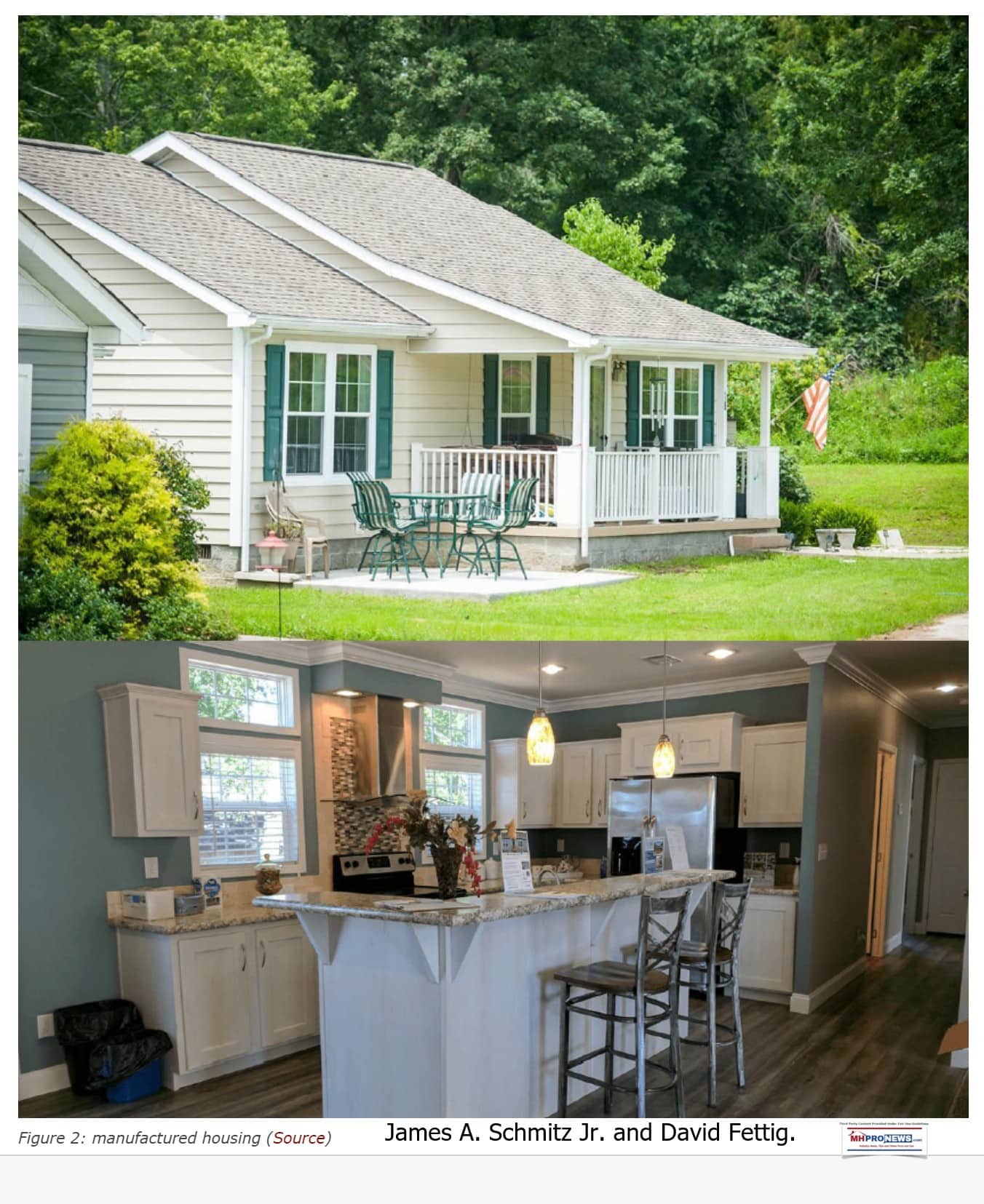
Dworkin cited the same data that Mark Weiss, J.D., President and CEO of the Manufactured Housing Association for Regulatory Reform (MHARR) did in mocking the obvious omission of the underlying cause of the affordable housing crisis. Namely, the underperformance of manufactured housing in the past two decades particularly.
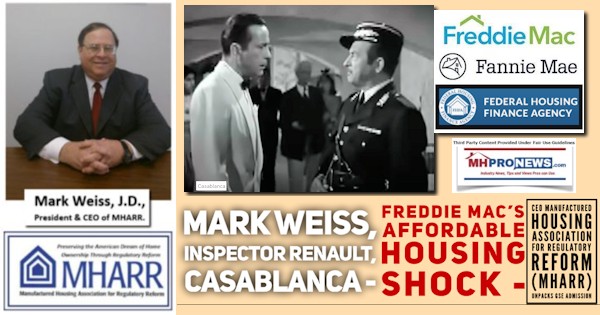
But there are other problems that arise when Dworkin is closely examined. Among them, another NHC coalition member, the National Low Income Housing Coalition (NLIHC) previously said that there were several million more units shortage then is now being claimed.
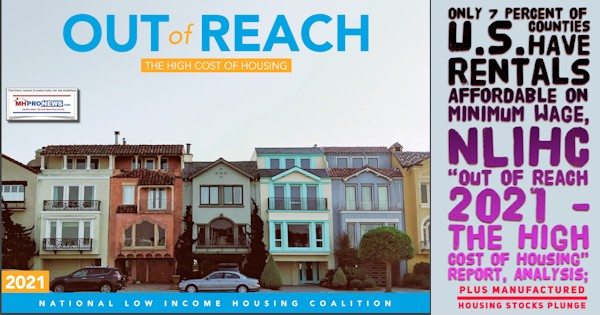
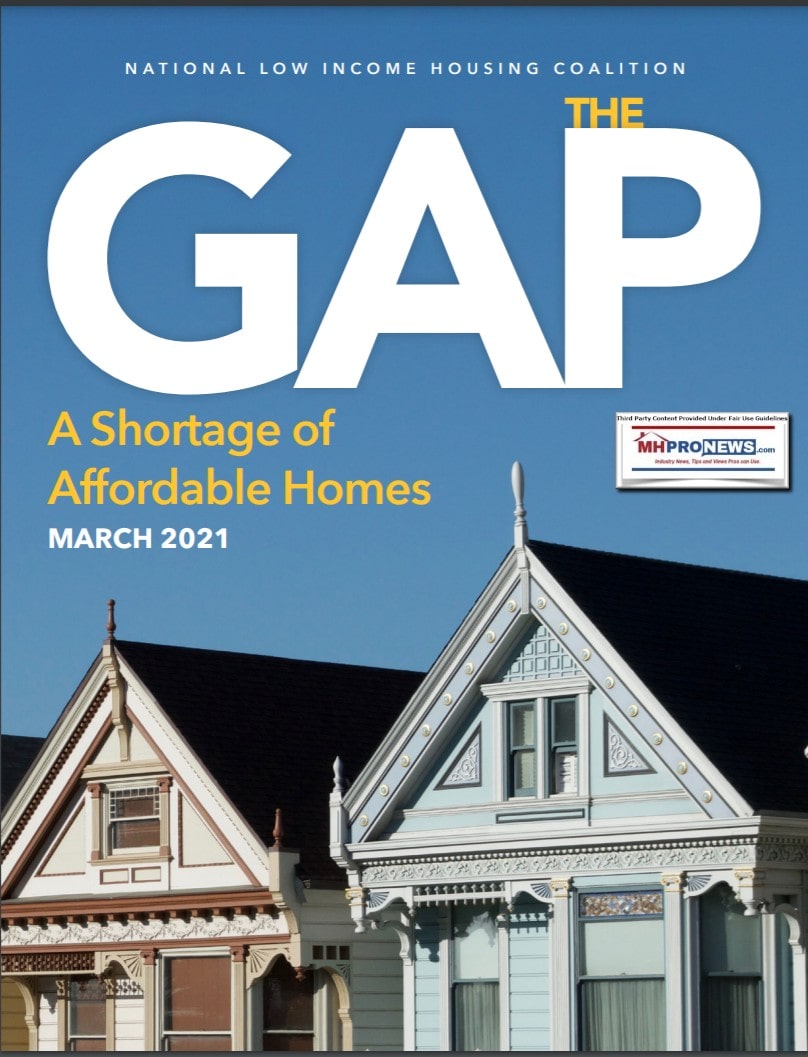
Also, the National Association of Realtors (NAR) has provided figures that stand at odds with more recent claims.
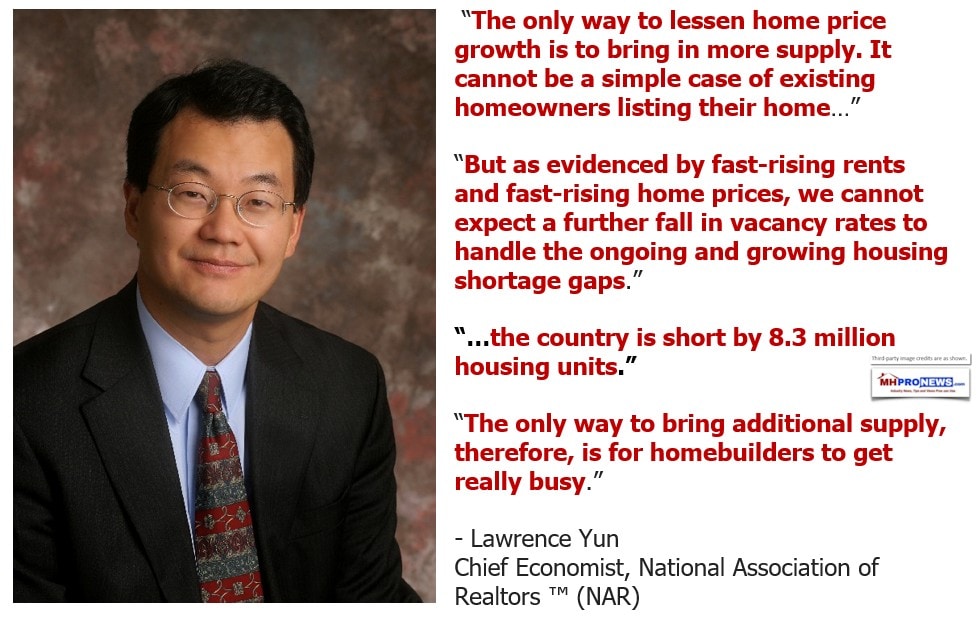
That begs the question, which of these claimed data points are correct? Does the U.S. need under 4 million housing units, or does it need 8.3 million or more? Given that other claims state that housing production has not kept up with the needs, that implies that the gap is growing, not shrinking.
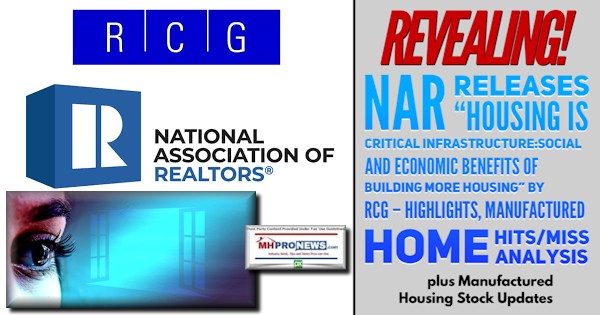
If they can’t agree on how much housing is needed, or cannot be consistent on what the shortfall or “gap” is, how is the rest of their advocacy to be blindly trusted?
The short version of this is simple. The only thing that will change the dynamics in housing is the production of more homes. Be it some 4 million or 8+ million housing units needed, conventional builders can’t meet the need.
Only factory builders can close the gap. Who says? Those who are planning to tap into factory-building to close the gap.
That’s why Warren Buffett, S2A, Elon Musk, and others have been pressing for modular or other prefab housing options.
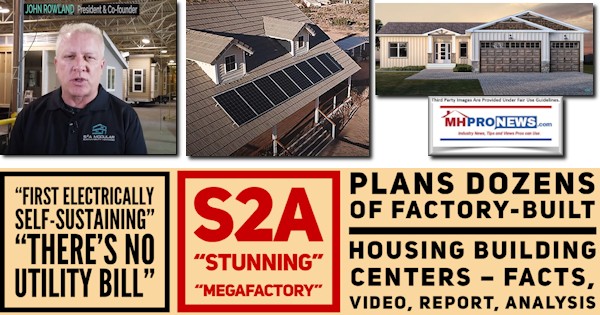
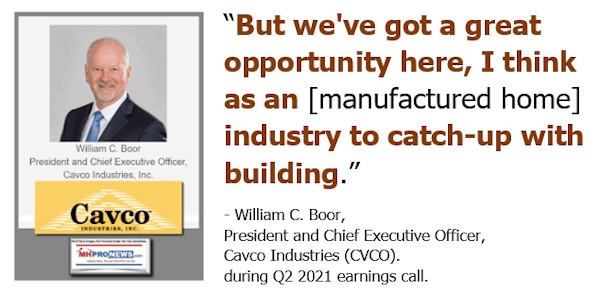
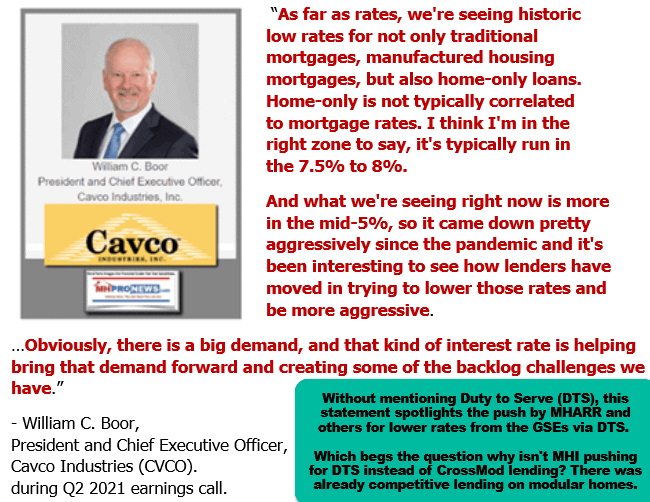

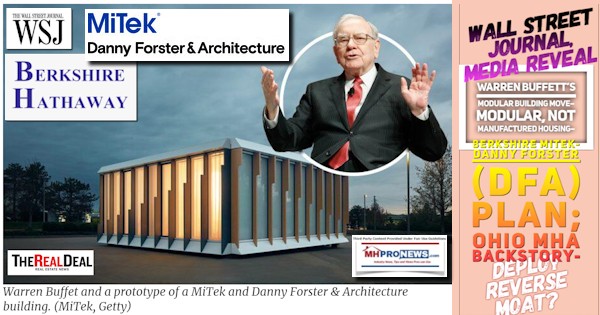
On paper, the CrossMods scheme might fall into that category, but its demonstrable market failure, per FHFA data provided to MHProNews and unpacked in the reports below, reveal that at least for now, there is no traction.
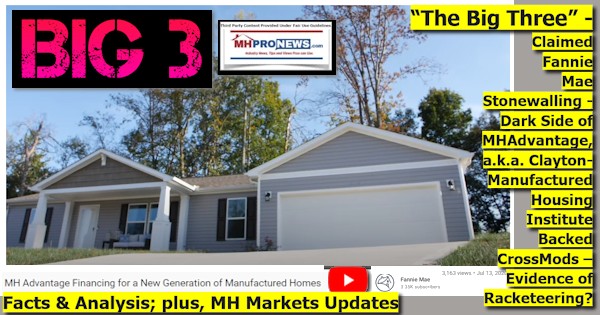
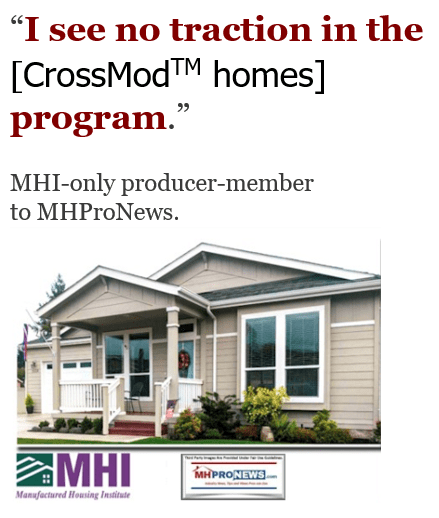
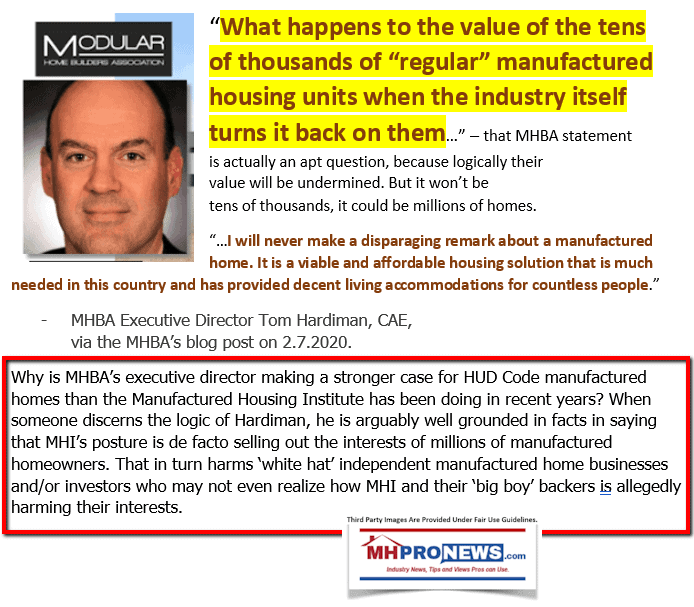
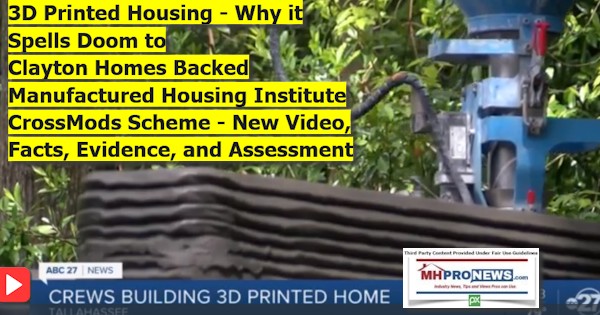
Those options, and the NHC post by Dworkin reflect a simple reality. The Democratic plan is an illusion at best, and arguably harmful at worst to the authentic needs for more affordable homes.
But that means that manufactured housing should be roaring, instead of snoring.
But there is at least one more not-to-be understated takeaway. MHI’s alliance with the NHC has clearly failed to achieve anything measurable for manufactured housing. MHI admits that Fannie Mae and Freddie Mac, apparently with the FHFA’s okay, did nothing on the so-called pilot project for manufactured home chattel lending. For years, that “pilot” was hyped. But it was MHProNews, thanks to a tip from insider MHI, that broke the news that the GSEs pilot for home-only manufactured home lending was dead. That was months before it became official.
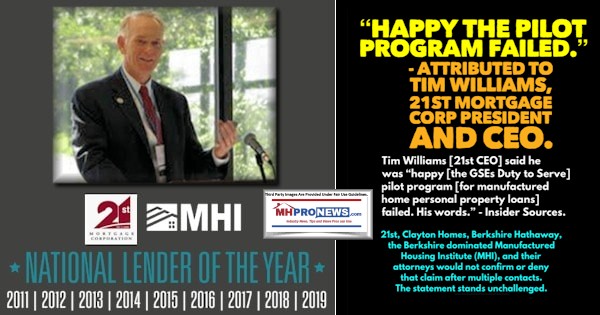
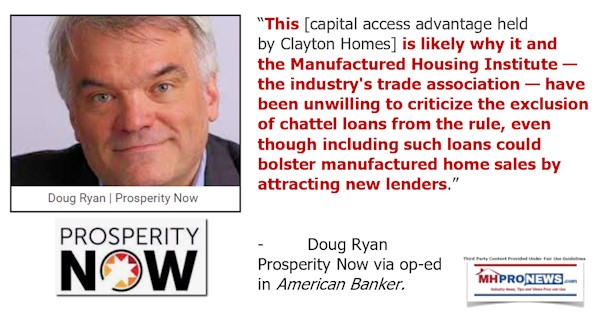
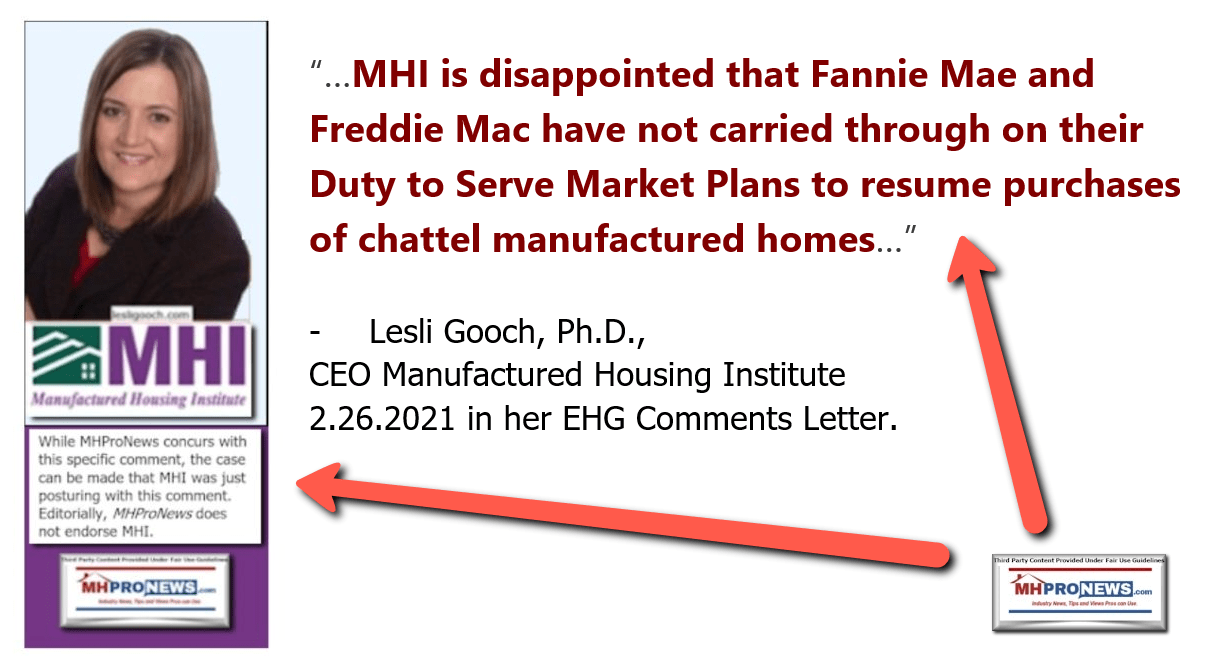
Additionally, MHI admits that there HUD has yet to properly implement the Manufactured Housing Improvement Act of 2000 (MHIA or 2000 Reform law).
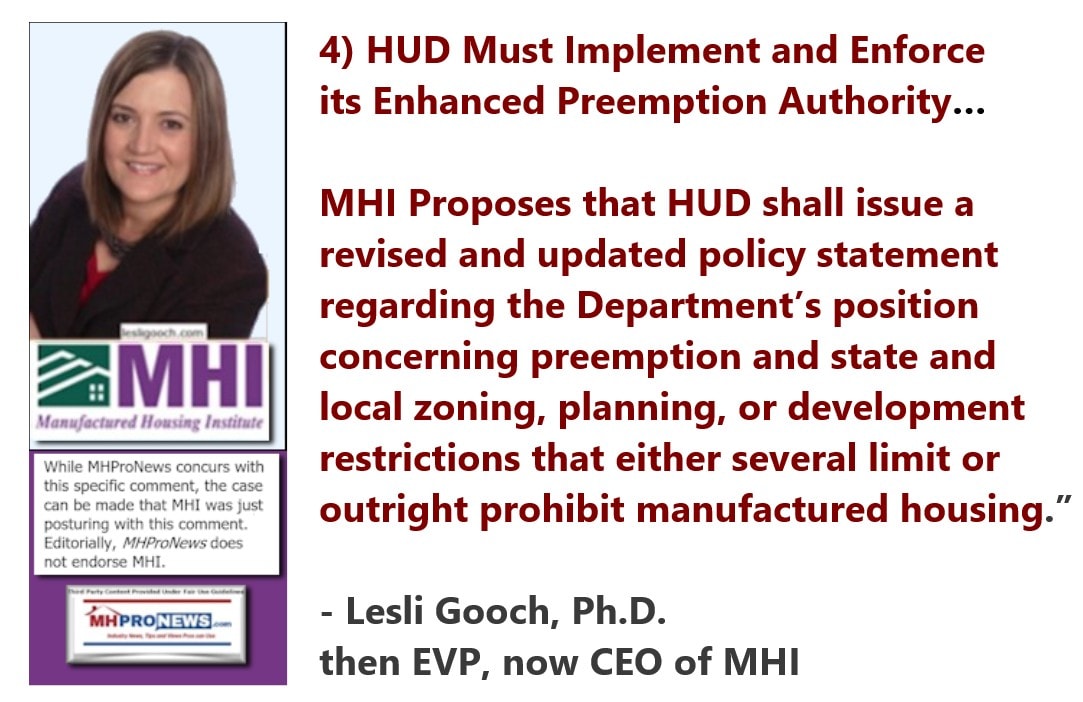
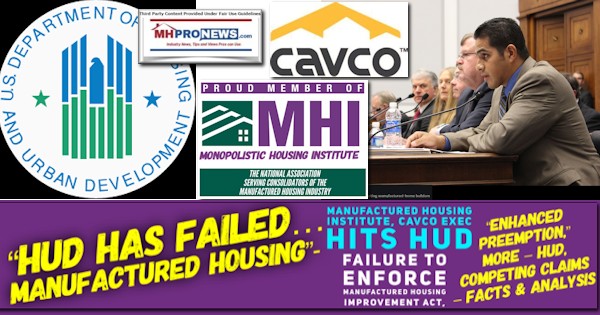
So, what good has this relationship between MHI and these other housing nonprofit groups measurably provided to manufactured housing?
The facts speak loudly when they are laid out in this fashion and then are considered and viewed objectively.
In fairness, the NHC was useful in facilitating responses below about Brian Montgomery, that MHProNews editorially opposed for reasons of conflicts of interest. Montgomery indeed turned out to be problematic for our industry’s authentic interests.
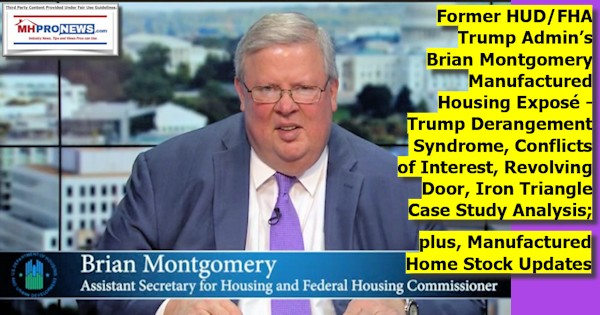

MHI’s obvious failure, “deception and misdirection” with respect to HUD Secretary Marcia Fudge is apparent too.
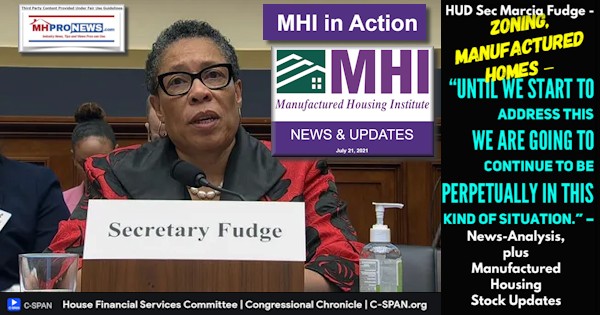
What unpacking Dworkin reveals is more evidence that the affordable housing crisis is being fueled by federal as well as local public policies, not abated by them.
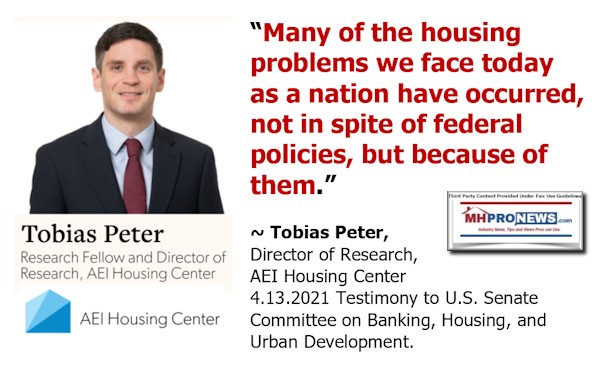
There are no obvious reasons to trust MHI, and the latest from Dworkin in the light of this fact-check and analysis demonstrates that sobering reality.

In passing, it is worth mentioning that all the hype about climate change is also disputed. So, just because something is widely believed that doesn’t mean that the belief is true. MHProNews has explored evidence based reasons to doubt climate, COVID policies (yes, real virus, but the current approach is arguably not the best – based on the evidence), and as this report reveals, housing policies are not likely to change the problems for the better.
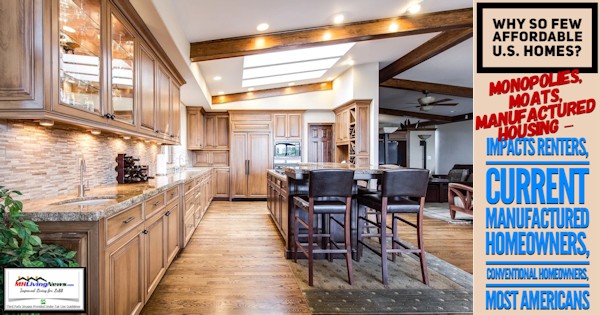

MHLivingNews report above predated HUD’s recent admission to the same effect. By following the facts, and looking for the motivations for the various players posturing, the truth can be discerned. ##
##
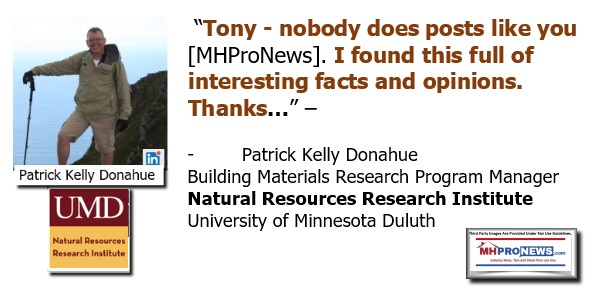
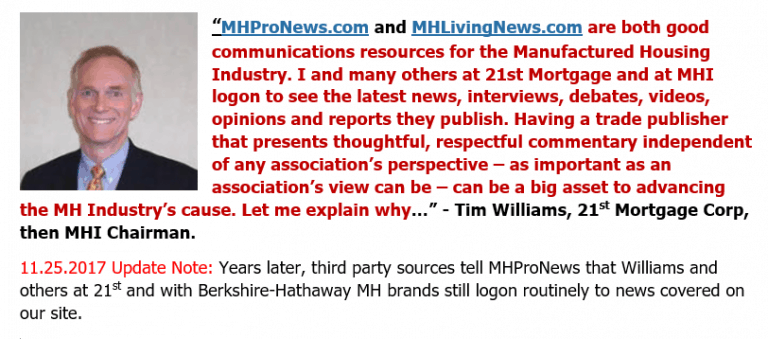
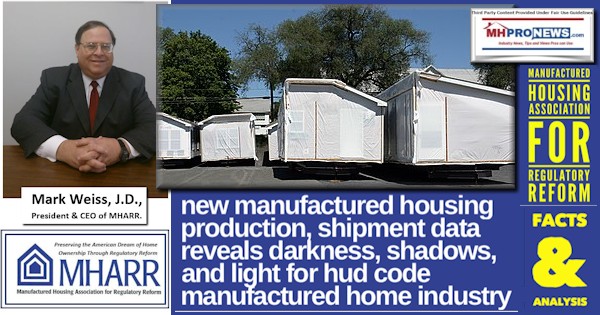


Our thanks to you, our sources, and sponsors for making and keeping us the runaway number one source for authentic “News through the lens of manufactured homes and factory-built housing” © where “We Provide, You Decide.” © ## (Affordable housing, manufactured homes, reports, fact-checks, analysis, and commentary. Third-party images or content are provided under fair use guidelines for media.) (See Related Reports, further below. Text/image boxes often are hot-linked to other reports that can be access by clicking on them.)

By L.A. “Tony” Kovach – for MHProNews.com.
Tony earned a journalism scholarship and earned numerous awards in history and in manufactured housing.
For example, he earned the prestigious Lottinville Award in history from the University of Oklahoma, where he studied history and business management. He’s a managing member and co-founder of LifeStyle Factory Homes, LLC, the parent company to MHProNews, and MHLivingNews.com.
This article reflects the LLC’s and/or the writer’s position, and may or may not reflect the views of sponsors or supporters.
Connect on LinkedIn: http://www.linkedin.com/in/latonykovach
Related References:
The text/image boxes below are linked to other reports, which can be accessed by clicking on them.
